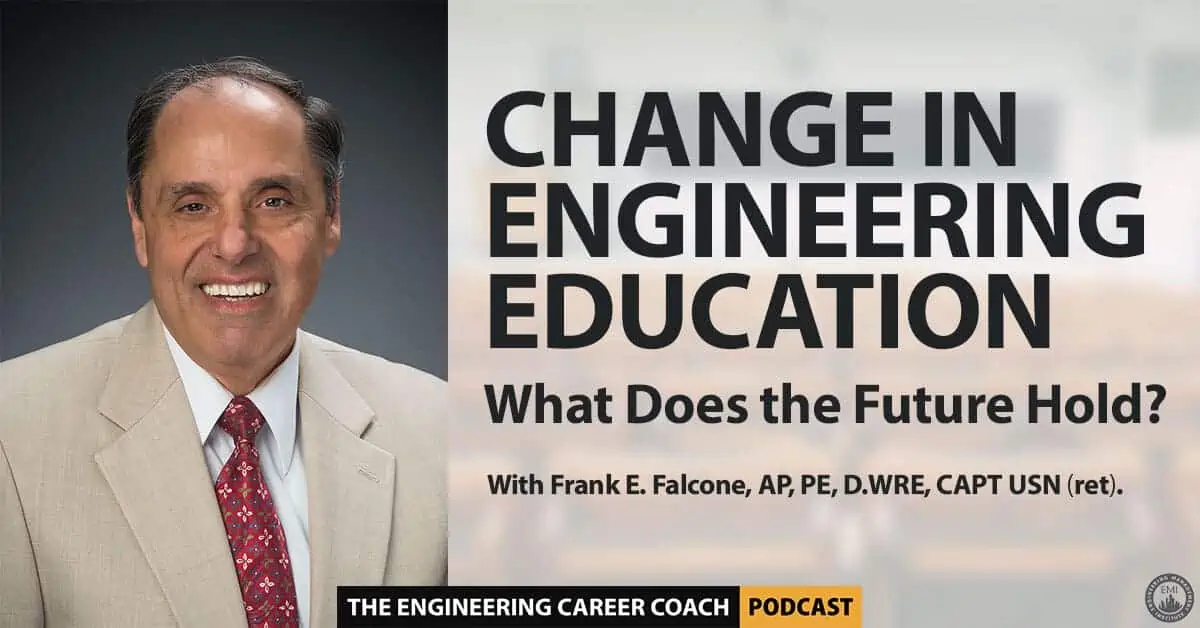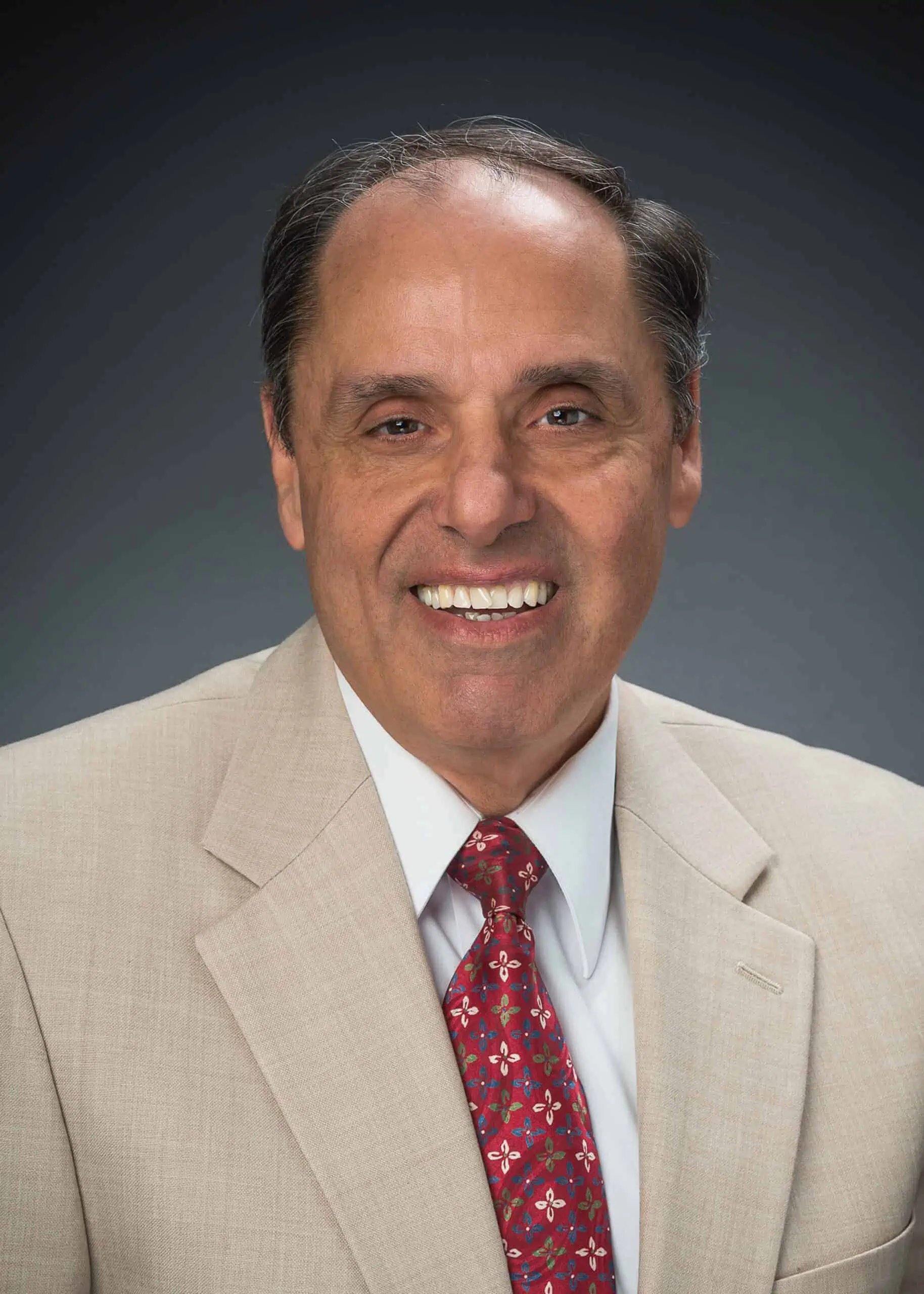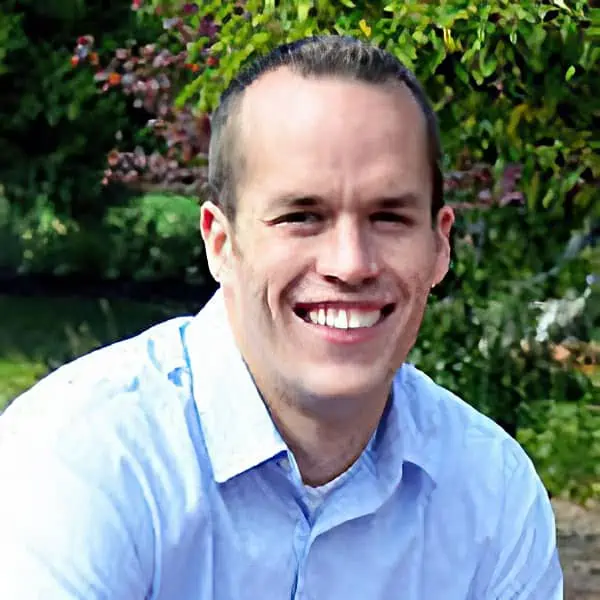Podcast: Play in new window | Download | Embed

Here Are the Questions Asked in This Episode:
- You wrote a book called “The Career Compass,” which is an online textbook required for all students enrolled in the College of Engineering’s Career Compass Program at Villanova. Tell us a little bit more about this book and how it evolved to help engineering students.
- What would you like to see engineers take away from this program that can help them in their careers moving forward?
- How has the engineering profession changed over the past decades?
- How should engineering education change to meet the demands of an ever evolving and “globalized” world?
- What are some of the typical and/or emerging career paths for newly graduated engineers?
- How should engineering students focus their plans and goals for a technologically expanding future?
- In your opinion, what do you think is on the horizon for the engineering profession and future engineers?
- Do you have any professional development tips, especially for early-career engineers?
Here Are the Key Points Discussed About Engineering Education:
- When we started the Career Compass Program, we knew that a great many students were going to be online, and we had to find a proper delivery system. I began recording videos for the students. At first, we had modules that included a video and an associated quiz with it. The videos, however, did not capture everything I wanted to say, and so I decided to write some text that went with each of the modules. This book is online-orientated and focuses on 21st-century education for engineers.
- The engineering profession has changed enormously over the last 40 years. Many years ago, the focus was very narrow, and an engineer was trained to do one aspect in engineering that wasn’t focused on management or leadership. Today, the engineering profession is very broad, and that is one thing that we want students to become: a broad-minded thinker in engineering.
- Engineering education should focus on the broad aspect of the profession and the projects that you are working on.
- Engineers should move away from thinking that they are graduating as a civil or mechanical engineer, and rather think about the career paths available in the future.
- The big international and national drivers that engineers should focus on are infrastructure, climate change, altered and energy sources, medical equipment devices, and the continual development of computerized systems. These will all become emerging career paths for engineers in the future.
- Students can interconnect almost instantaneously with anyone in the world or any given technical subject. Their focus should be on broadening their minds and interconnecting with people all over the world. Having this ability allows engineers to think about solving some of the enormous problems since the beginning of time. We must get our engineering colleges and universities and our faculties to think broadly, and this is where the engineering industry must change.
- As the sea levels are rising, the structures that we built must be resilient, so it is important to design for different kinds of loads, pressures, and project durations.
- While engineering students are still in school, they need to create a form of self-awareness to determine who they are and what they want to achieve in their lives. This will help provide you with a sense of self-satisfaction, professional satisfaction, professional growth, and personal happiness. Once you determine who you are, you can start thinking more broadly about the problems you want to try to solve in this world.
More in This Episode…
In the Take Action Today segment of the show, Professor Falcone gives one final takeaway on how we can think of our careers today, as well as in the future.
About Frank E. Falcone; AP, P.E., D.WRE, CAPT USN (ret).

He holds bachelor’s and master’s degrees in civil engineering and is a registered Professional Engineer. As a member of the faculty, he has taught at the undergraduate and graduate levels, both part time and full time, since 1974. His technical fields of expertise include Fluid Mechanics, Hydraulics, Statics/Dynamics, Hydrology, Water Resources, International Water Resources Master Planning, Dams, Reservoirs, River Diversion Systems, Storm Water Management, and Federal Facilities Evaluations & Inspection Services. In 2020, the Accreditation Board for Engineering & Technology (ABET) cited the Career Compass Program as an “Institutional Strength” for the College of Engineering.
Prof. Falcone is the recipient of the 1991 Meritorious Service Award and the 1999 Farrell Award from the College of Engineering and serves on the Selection Committees for the prestigious Villanova University Praxis Award for Ethics. He is the Chairman of the John McKee Scholarship Committee, which provides college scholarships for fatherless boys throughout the Delaware Valley, and is also a Founding Diplomate in the American Academy of Water Resources Engineers. In 2017, he was selected by industry leaders to receive the prestigious “Educator of the Year” Award from the Philadelphia Section of the American Society of Civil Engineers. In 2021, he was selected to receive the “Outstanding Service to the Engineering Profession in the Delaware Valley Award.”
Anyone interested in learning more about the textbook, ‘The Career Compass’, can send Prof. Falcone an email directly at [email protected]
About the Host, Jeff Perry, MBA

You can connect with Jeff on LinkedIn at https://www.linkedin.com/in/jeffcperry/ or visit his website, https://morethan-engineering.com. Jeff also has a new, FREE, on-demand training course for engineers who are job searching or in job transitions. You can see it at https://engineeringcareeraccelerator.com.
Resources and Links Mentioned in This Session Include:
Career Compass: Professional Development for Villanova Engineers
Connect with Professor Frank Falcone on LinkedIn
Email Professor Frank Falcone
We would love to hear any questions you might have or stories you might share about engineering education.
Please leave your comments, feedback, or questions in the section below.
To your success,
Jeff Perry, MBA
Host of The Engineering Career Coach Podcast




